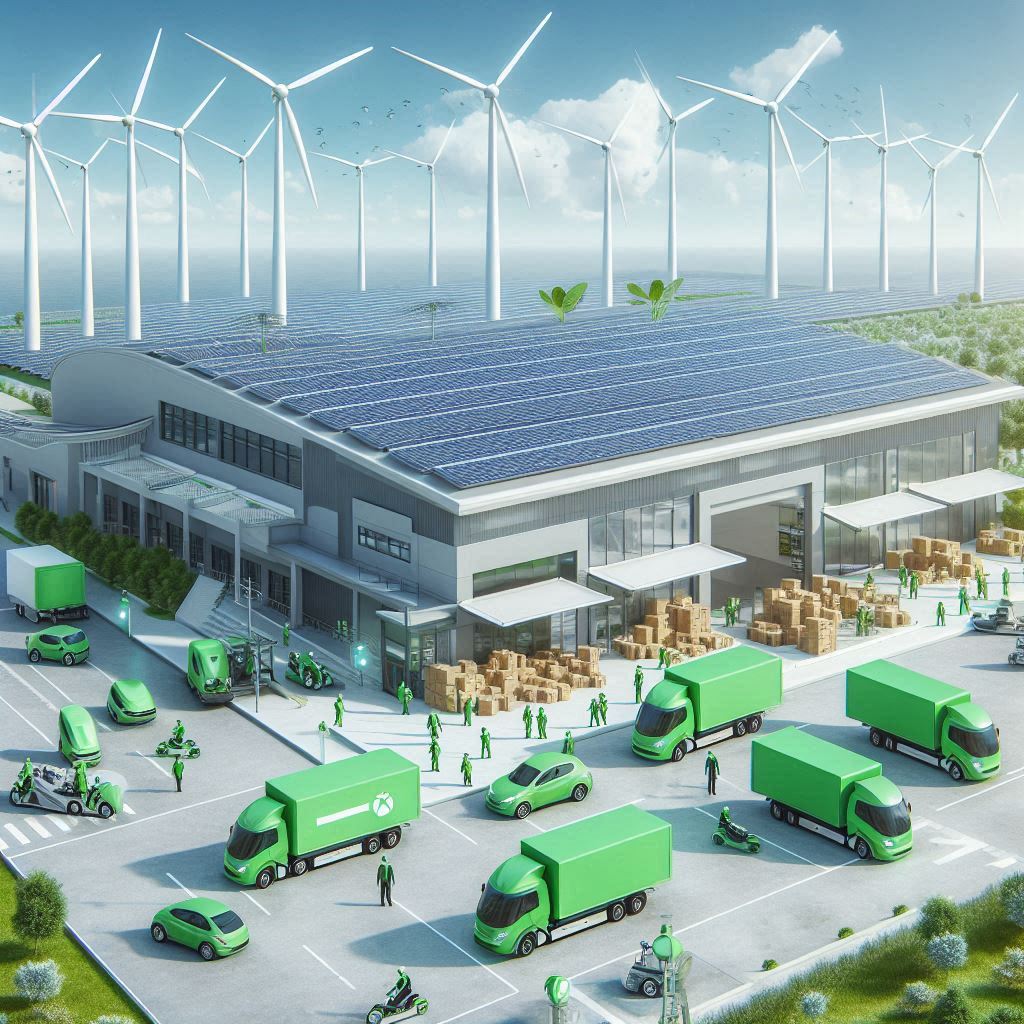Embracing sustainable freight transport is crucial for our planet’s future. By innovating with biodegradable materials, renewable energy, and eco-friendly packaging, we pave the way for a cleaner, more responsible logistics industry.

Dear readers
At a time when climate change and environmental sustainability are at the forefront of global concerns, the freight transport industry is undergoing profound change. As both businesses and consumers push for greener practices, innovative solutions are emerging to make freight transport more environmentally friendly. My article looks at the key sustainable strategies that are reshaping the industry and highlights their benefits and impacts.
The rise of sustainable freight transport
The freight transport sector, traditionally reliant on fossil fuels and conventional packaging, is now shifting to more sustainable practices. This shift is due to the urgent need to reduce greenhouse gas emissions and minimise environmental damage. Key strategies include the use of biodegradable materials, the integration of renewable energy sources and the introduction of sustainable packaging.
Biodegradable materials: reducing the environmental footprint
Biodegradable materials are changing the way goods are packaged and shipped. Unlike traditional plastics, which take hundreds of years to decompose, biodegradable alternatives break down more quickly and safely, reducing waste and pollution. These materials, which are often derived from natural sources such as corn starch or sugar cane, break down into harmless substances, significantly reducing the environmental impact of transporting goods.
Renewable energies: energy for a greener future
Renewable energy sources such as solar and wind power and biofuels are increasingly being used for freight transport. Solar panels on trucks and warehouses, wind turbines in distribution centres and biofuel-powered engines are just a few examples of how the industry is turning to clean energy. This shift not only reduces carbon emissions, but also reduces reliance on non-renewable energy sources, promoting a more sustainable supply chain.
Sustainable packaging: A responsible choice
Sustainable packaging is another important aspect of environmentally friendly freight transport. Companies today are opting for recyclable, reusable and compostable packaging materials. This not only reduces waste, but also promotes a circular economy where materials are continuously reused instead of thrown away. By choosing sustainable packaging, companies can significantly reduce their environmental footprint and promote responsible consumption patterns.
The benefits of sustainable freight transport
There are numerous benefits to adopting sustainable practices in freight transport:
Environmental impact: reducing carbon emissions and waste contributes to a healthier planet.
Cost efficiency: Renewable energy sources and efficient packaging can reduce long-term operating costs.
Brand reputation: Companies that prioritise sustainability often enjoy greater brand loyalty and a positive public image.
Regulatory compliance: Complying with environmental regulations can prevent legal issues and potential fines.
Conclusion: Towards a greener future
As the freight transport industry continues to evolve, the integration of sustainable solutions is proving to be a crucial factor. By utilising biodegradable materials, renewable energy and sustainable packaging, companies are not only reducing their environmental footprint, but also setting a standard for environmental responsibility. These efforts are paving the way for a future where freight transport is both efficient and environmentally friendly, in line with global sustainability goals.
The transition to sustainable freight transport is critical to the wellbeing of our planet. Companies that invest in these green initiatives are not only helping to protect the environment, but are also positioning themselves as leaders in a rapidly changing industry. By making conscious choices today, we can ensure a greener, more sustainable future for generations to come.
Your
Thomas Hellmuth-Sander

Schreibe einen Kommentar